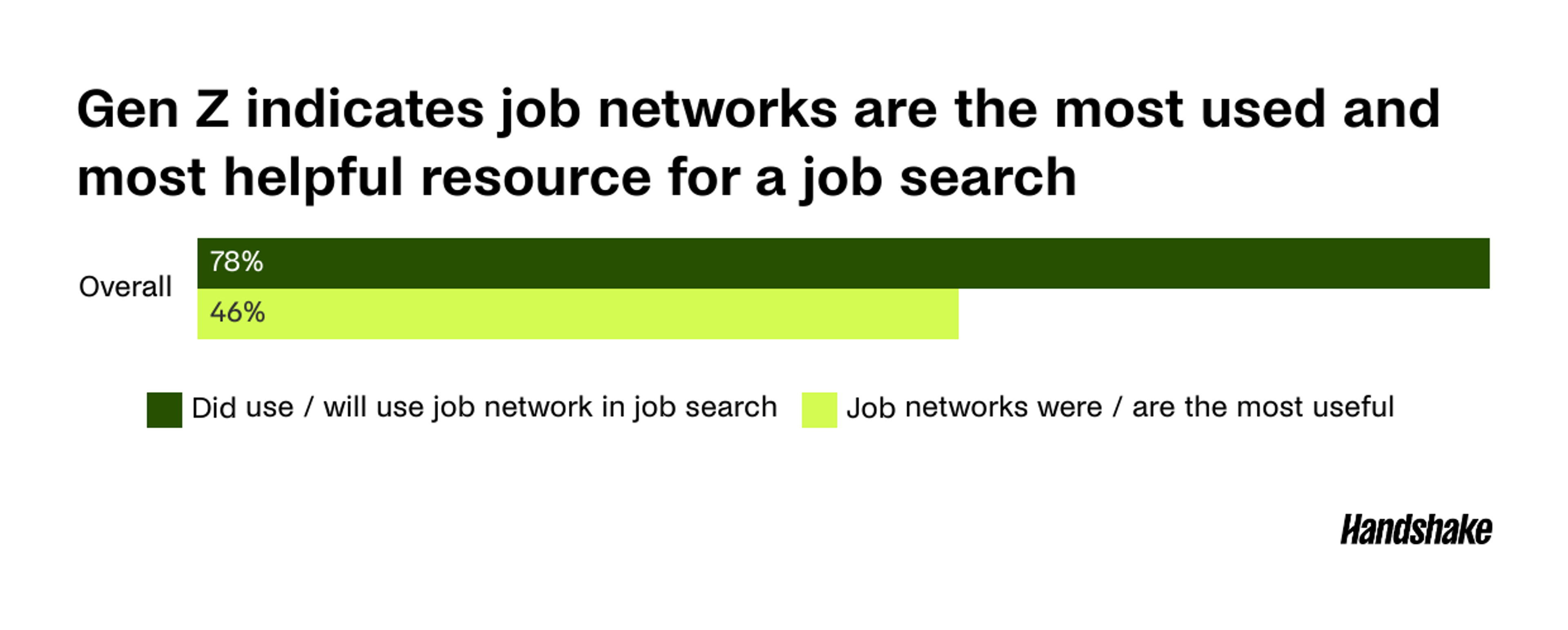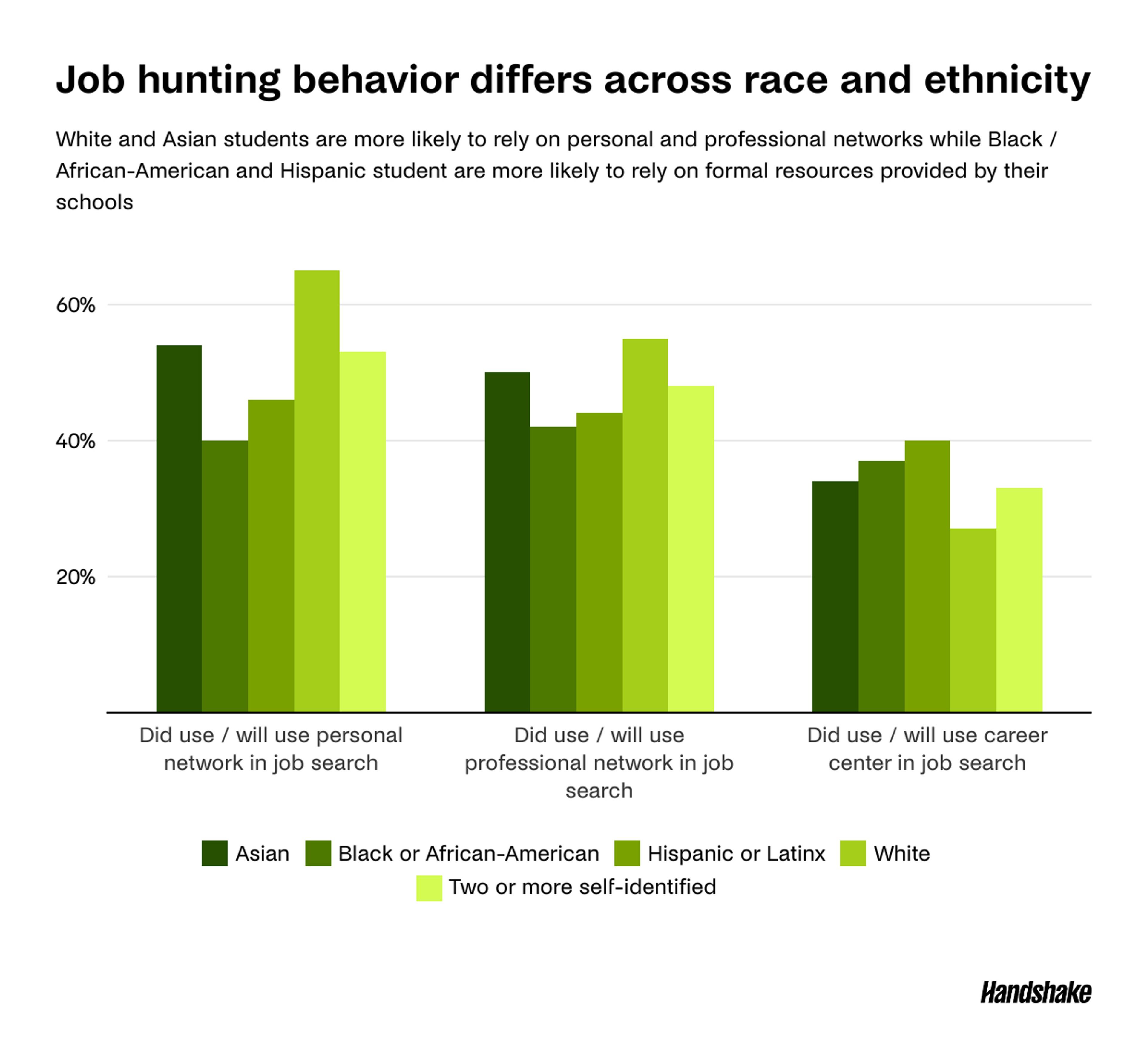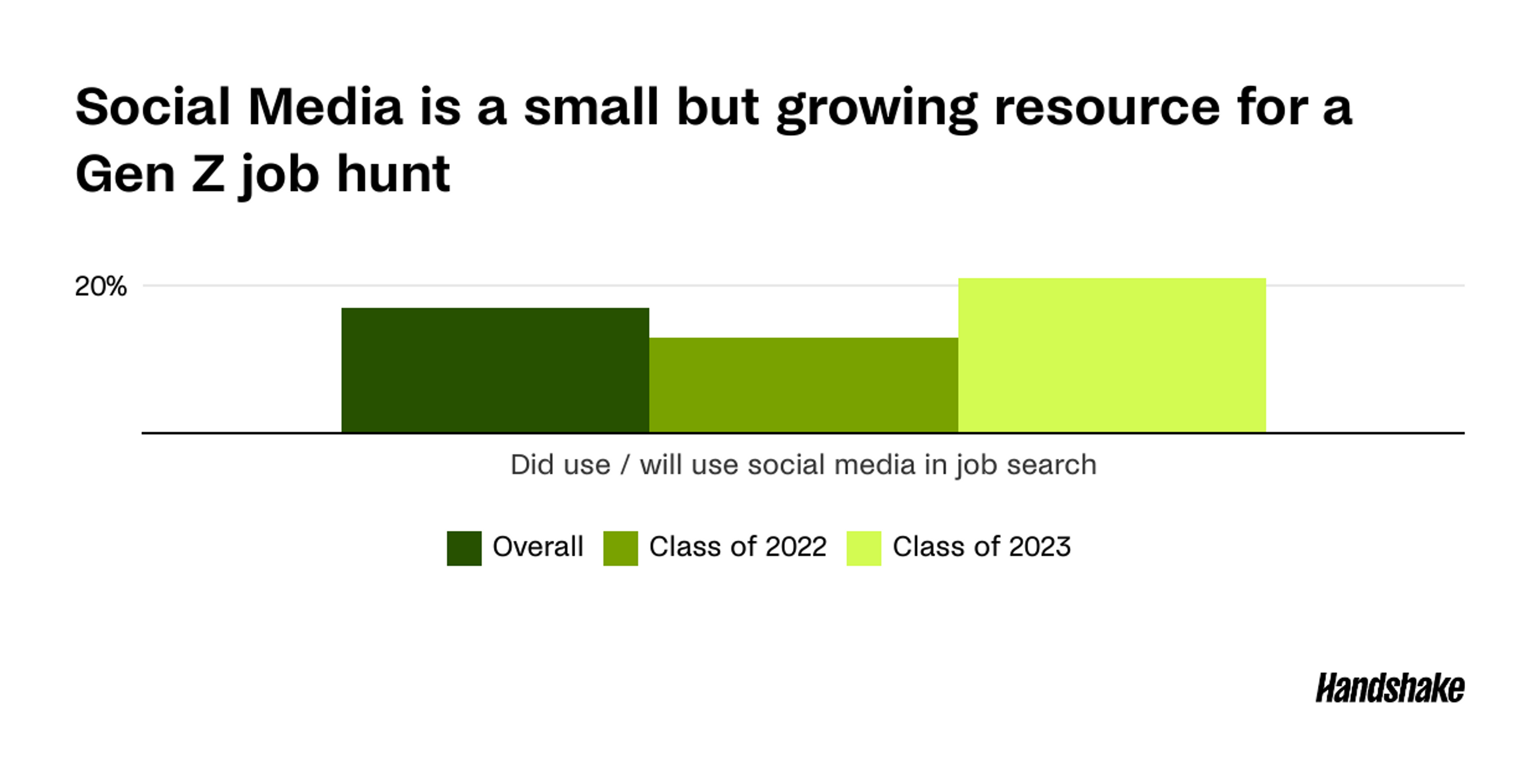Key takeaways
- A majority (78%) of job seekers identified job network sites as their primary method for finding employment. The percentage that credited these sites with having a positive impact on their ability to find a job was significantly higher than any other method.
- While White and Asian respondents favored personal and professional networks over institutions, Black or African-American and Hispanic respondents favored formalized resources provided by their academic institutions.
- Social media currently has a small role in job hunting behavior, but has shown to be increasing in prevalence between the Class of 2022 and the Class of 2023. Although only 13% of the Class of 2022 relied on social media, the number jumped to 21% for the Class of 2023.
Gen Z is entering the workforce during a time in which they are facing increased competition for fewer job postings in several industries. To better understand how Gen Z conducts a job hunt, we asked 1,343 Handshake users across the classes of 2022 and 2023 which resources they rely on to search for a new role. These responses provide insight into both the complexity of looking for a new role as well as how employers can best target Gen Z talent in the future.

Even though there are myriads of ways that job seekers can search for employment, the most common resource that Gen Z uses are job networks, such as Handshake or LinkedIn. 78% of overall job seekers said that they use or plan to use a job network. Viewing responses across race and ethnicity, job networks are also the most common resource, with at least 71% of each racial/ethnic group stating that they have used or will use a job network in a job hunt.
Perhaps obvious, the reason that so many job seekers use networks is because they find them the most helpful of all options—46% of respondents said that job networks were the most helpful, which was higher than any other job search method they were asked about.

Although job networks are the most commonly used career resource for students of all demographics, our survey highlights other ways that job-seeking behavior differs by racial and ethnic groups.
Our survey results show a clear reliance on informal resources, such as personal and professional networks, by White and Asian respondents. 65% of White job seekers and 54% of Asian job seekers stated that they used or plan to use personal networks for their job hunt. When asked about the use of professional networks, which include previous work colleagues, alumni, etc., these numbers fall slightly to 55% for white job seekers and 50% for Asian job seekers.
In contrast, Black or African-American and Hispanic students and alumni tend to rely more heavily on formal resources provided by their academic institutions. While 40% of Hispanic respondents and 37% of Black or African-American respondents identified the career centers as a resource they would rely on for finding employment, only 27% of White respondents and 34% of Asian respondents agreed.
These differences in job hunting behavior are unsurprising given the research showing that social networks shape racial disparities in employment opportunities. A previous Handshake study indicates that progress is being made to close the gap in access to social capital with students and alumni of color 2.1 times more likely than white respondents to reach out to an alumni they did not previously know.

One unifying trend amongst all racial and ethnic groups is the negligible impact of social media on job seeking behavior right now. Currently, only 17% of overall users surveyed have or will use sites such as Reddit or Tiktok for their job search, with this number staying below 22% across all racial groups.
The prevalence of social media for job hunting has been increasing, however. While only 13% of the Class of 2022 relied on social media, the number jumped to 21% for the Class of 2023. The increase of eight percent more users from 2022 to 2023 suggests social media will become a bigger resource going forward for students to explore their career options. Recruiters have also indicated that they have been using new sources such as TikTok to search for talent, especially in industries that have had a difficult time hiring.
Methodology
- Class of 2022 and 2023 data is based upon user-submitted graduation year – students without listed graduation year excluded from graduation year analysis.
- Handshake surveyed 1,343 jobseekers from the classes of 2022 and 2023 about their thoughts on the economy, job market, and future of work. This blog summarizes the findings of the survey, with a focus on the responses to specific questions about their higher education experience.
